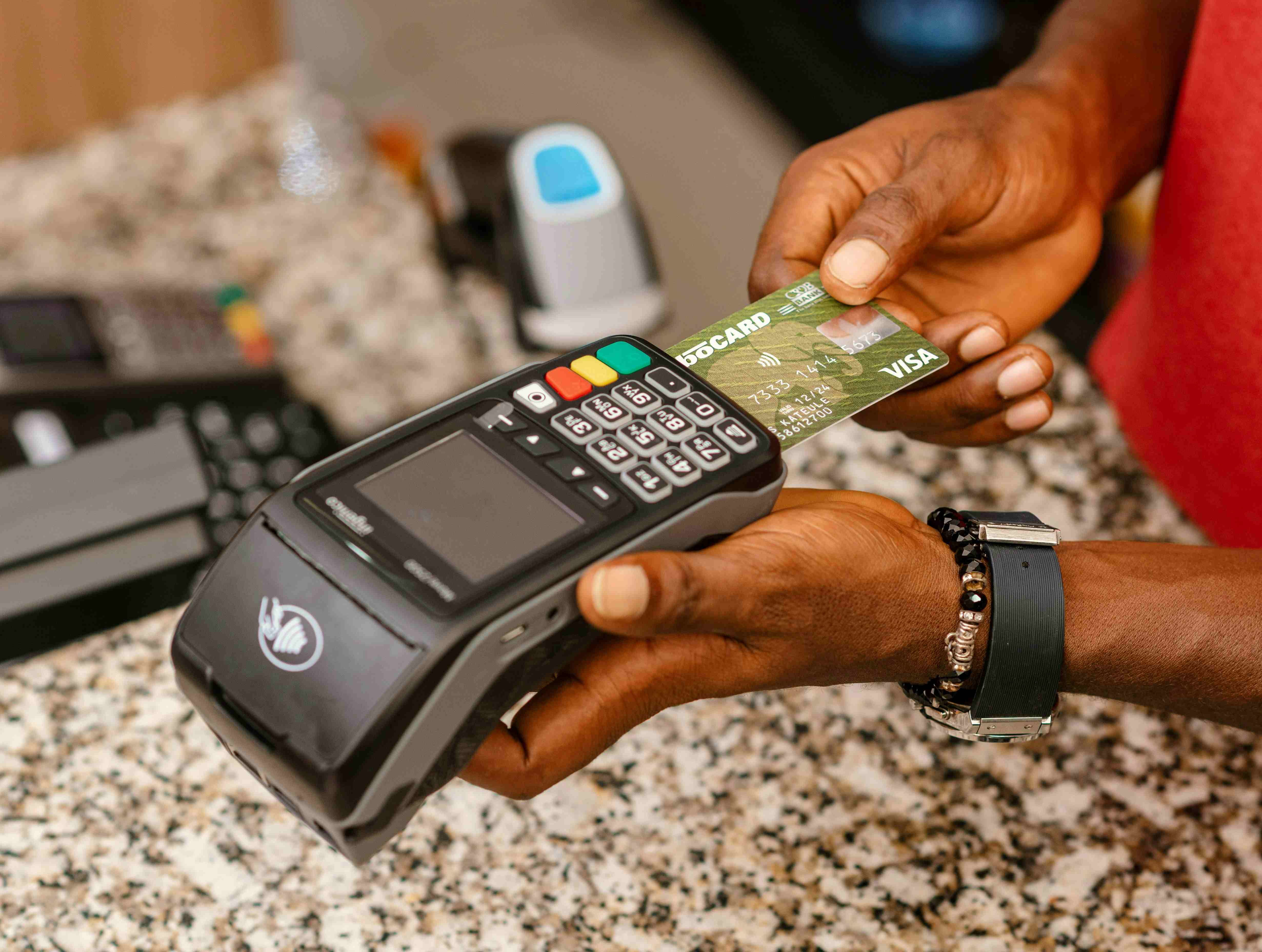The New POS Rules Shaking Up Nigeria’s Fintech Industry

In Q1 2025 alone, POS transactions hit a record ₦10.51 trillion, marking a 301.67% increase from Q1 2024. But this explosive growth has come with a price: POS agents, often unknowingly, have become gateways for illicit financial flows.
In a bold move aimed at curbing digital payment fraud and enhancing financial transparency, the Central Bank of Nigeria (CBN) recently issued a directive that is already shaking up the country’s rapidly growing mobile payments ecosystem.
Point-of-Sale (POS) operators—ubiquitous throughout Nigeria, must now operate within 10 meters of their originally registered location. The new rule, coupled with the mandatory geo-tagging of all POS terminals, is expected to fundamentally transform how small-scale financial services are delivered across the country.
The move is intended to curb fraud, prevent the rampant mobility of POS terminals, and strengthen Nigeria’s bid to exit the Financial Action Task Force (FATF) grey list, where the country was placed in 2023 for deficiencies in its anti–money laundering framework.
According to a report by The Nation, the CBN has given all POS service providers and their agents 60 days to comply with the new regulations, with enforcement set to begin on October 20, 2025. Non-compliant terminals will be automatically deactivated, signaling a firm stance by the regulator in cleaning up the system.
But what exactly prompted this crackdown—and what does it mean for Nigeria’s 1.9 million POS agents, the fintech firms backing them, and the millions of Nigerians who rely on them daily?
Image Credit: Unsplash
What Types of Fraud Exists With POS?
Fraudsters have been known to clone terminals, operate multiple unregistered devices, and use mobile terminals to avoid detection in money laundering schemes.
By geo-tagging every POS terminal and limiting its operation to within a 10-meter radius of a verified address, the CBN is aiming to “significantly reduce the risks of terminal cloning and unauthorized operations,” according to a report by The Guardian Nigeria. Transactions will now be traceable to a specific physical location.
In essence, the rule prevents a POS device registered at, say, a shop in Surulere, Lagos, from being moved around town, or across states—to operate anonymously.
According to the Tribune Online, geo-tagging also means that complaints—about failed transfers, unauthorized charges, or unethical practices—can now be investigated more easily. “When a transaction goes wrong, tracing the operator becomes less of a wild goose chase,” the report notes.
Latest Tech News
Decode Africa's Digital Transformation
From Startups to Fintech Hubs - We Cover It All.
Moreover, it could curb the problem of overcharging, a persistent issue where agents inflate service fees in rural or mobile locations under the guise of scarcity.
The Technology Behind It

Image Credit: Unsplash
Behind the scenes, the regulation leverages real-time geolocation technology embedded within the POS terminals. These devices will now be equipped with GPS chips capable of dual-frequency location tracking—a method that ensures higher precision than standard consumer GPS.
Additionally, every POS terminal must now be registered through a Payment Terminal Service Aggregator (PTSA)—either NIBSS or Unified Payments, and be precisely mapped to GPS coordinates indicating the merchant’s location.
Before any transaction can be completed, the terminal must transmit its exact coordinates to Nigeria’s National Central Switch, a centralized data infrastructure managed by the Nigeria Inter-Bank Settlement System (NIBSS). If the coordinates fall outside the registered 10-meter boundary, the transaction is blocked.
Fintech providers are racing to comply. According to Techloy, companies like OPay, Moniepoint, and Palmpay are already working with their hardware vendors to update existing terminals and build the geo-tagging capability into new ones. While the GPS requirements may raise costs in the short term, they are seen as a necessary investment in system security.
What’s at Stake for Agents and Small Businesses?
However, not everyone is celebrating the new rules. POS operators, especially those who work on-the-go or in markets with dynamic setups, have expressed concerns. A device that must remain fixed to a small radius isn’t compatible with the reality of many small businesses.
“Nigeria should align with global standards, improve data quality, and fight fraud,” one payments operator told TechCabal, speaking on condition of anonymity. “But the directive shows little understanding of operational realities in Nigeria’s payments system.” According to this insider, to meet the CBN’s deadline, at least 60,000 terminals would need to be geo-tagged every single day—a logistical mountain that few believe can be scaled.
Upgrading millions of terminals requires thousands of engineers and field agents. In addition to manpower shortages, the supply chain may also buckle under the pressure. Hardware imports and software certifications will increase costs, introduce delays, and strain smaller players.
Latest Tech News
Decode Africa's Digital Transformation
From Startups to Fintech Hubs - We Cover It All.
The operator warned that smaller Payment Terminal Service Providers (PTSPs) and Mobile Money Operators (MMOs) may be pushed into insolvency simply trying to upgrade or replace their existing hardware.
Beyond economic strain, there’s the problem of physical feasibility. “The rule of a 10-meter radius may work for a roadside kiosk,” the operator noted. “But what about a large supermarket, hotel, mall, or fuel station? Transactions often happen far beyond that range. The rule is unworkable in real life.”
These critiques raise important questions about how innovation can coexist with regulation. In a country where financial inclusion often comes through informal channels, will the cost of certainty be flexibility? And will the very system built to empower the underbanked end up excluding them in the name of compliance?
Some fear that overregulation could drive transactions back into the shadows—or completely discourage innovation in agent banking.
Final Thoughts: A Digital Inflection Point
The next few months will be critical. Will fintech companies meet the compliance deadline? Will small agents get the tools and support they need to stay afloat? And will consumers begin to feel safer in their digital interactions?
What’s certain is that Nigeria’s mobile money landscape is at a crossroads. For the millions of people who depend on POS terminals for everyday transactions, the success or failure of this policy could redefine the very nature of money and time, in Africa’s largest economy.
You may also like...
When Sacred Calendars Align: What a Rare Religious Overlap Can Teach Us

As Lent, Ramadan, and the Lunar calendar converge in February 2026, this short piece explores religious tolerance, commu...
Arsenal Under Fire: Arteta Defiantly Rejects 'Bottlers' Label Amid Title Race Nerves!

Mikel Arteta vehemently denies accusations of Arsenal being "bottlers" following a stumble against Wolves, which handed ...
Sensational Transfer Buzz: Casemiro Linked with Messi or Ronaldo Reunion Post-Man Utd Exit!

The latest transfer window sees major shifts as Manchester United's Casemiro draws interest from Inter Miami and Al Nass...
WBD Deal Heats Up: Netflix Co-CEO Fights for Takeover Amid DOJ Approval Claims!

Netflix co-CEO Ted Sarandos is vigorously advocating for the company's $83 billion acquisition of Warner Bros. Discovery...
KPop Demon Hunters' Stars and Songwriters Celebrate Lunar New Year Success!

Brooks Brothers and Gold House celebrated Lunar New Year with a celebrity-filled dinner in Beverly Hills, featuring rema...
Life-Saving Breakthrough: New US-Backed HIV Injection to Reach Thousands in Zimbabwe

The United States is backing a new twice-yearly HIV prevention injection, lenacapavir (LEN), for 271,000 people in Zimba...
OpenAI's Moral Crossroads: Nearly Tipped Off Police About School Shooter Threat Months Ago
ChatGPT-maker OpenAI disclosed it had identified Jesse Van Rootselaar's account for violent activities last year, prior ...
MTN Nigeria's Market Soars: Stock Hits Record High Post $6.2B Deal

MTN Nigeria's shares surged to a record high following MTN Group's $6.2 billion acquisition of IHS Towers. This strategi...






